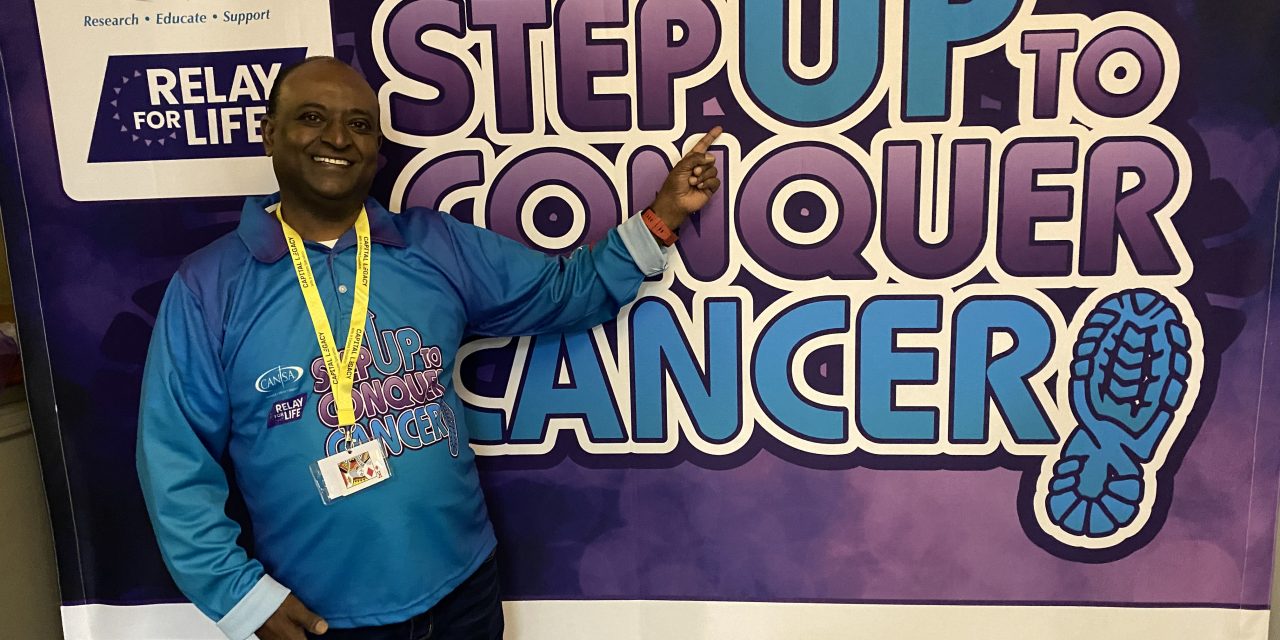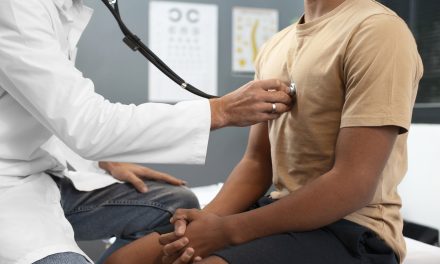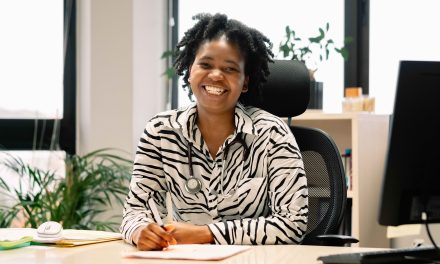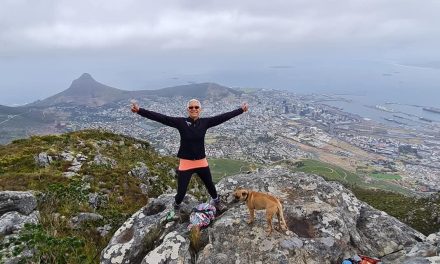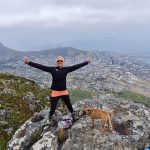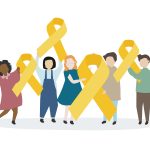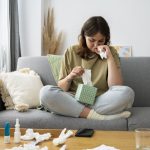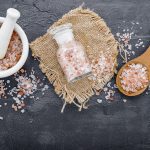After a family loss, Anand now works to ensure others have the help they need to fight cancer
He lost his mother to breast cancer in silence, and so Anand Gounden turned his pain into purpose. Today, he is a tireless advocate for cancer awareness, especially in schools and underserved communities. As Chairperson of CANSA Relay for Life Pietermaritzburg, a National Relay Advisory Team Member, and a recognised Global Hero of Hope Caregiver, Anand shares his journey of honouring his mother’s memory through education, compassion, and unwavering commitment to breaking the stigma around cancer.
Take us back to when you first learned about your mother’s cancer diagnosis. What were your first thoughts and emotions?
I come from a rural village called Jaagbaan, in the Natal Midlands. It was a very close community of around 400 families. I was enrolled at the University of Durban-Westville during the time of my mother’s fight with cancer. It was the year 1982 when she was first diagnosed with cancer, according to a later conversation with the district surgeon.
My mother demanded secrecy about her condition because she feared our family of seven would be ostracised and stigmatised. The surgeon agreed to inform only my father, who, being quite naïve, had little knowledge of cancer. He sent my mother to the local clinic where she was only given “calming” medicine.
When I completed my studies in 1985 and returned home to serve my community as a teacher, I realised her condition. By then, it was too late; her breast cancer had spread. She passed away on 24 February 1987.
My emotions were uncontrollable, and I demanded a meeting with my father and the district surgeon. My father wept silently, realising his mistake in keeping quiet. The surgeon cited client confidentiality. I broke down, asking why there was no second opinion. My fight with cancer began on that day.
Growing up in a village where cancer was taboo, how did you begin to challenge that silence?
I was never allowed to do that in the village. None of them knew that my mother died of breast cancer apart from the surgeon and nursing staff and their families. My father asked me not to speak of cancer at home again.
You vowed to break the silence around cancer: how have you lived out that promise?
I waited for the right opportunity. I met my wife at university and we married in 1988. In 2008, I heard about the Cancer Relay for Life. All the emotions came flooding back as if it had just happened.
Attending the Relay and listening to the Fight Back ceremony deeply moved me. I joined the Relay Committee in 2011 and was later nominated as Chairperson. After moving to Pietermaritzburg, I invited CANSA staff to my school. We hosted monthly assemblies for 1,200 learners, addressing teenage cancer issues and organising Shavethons and Sprayathons to raise awareness.
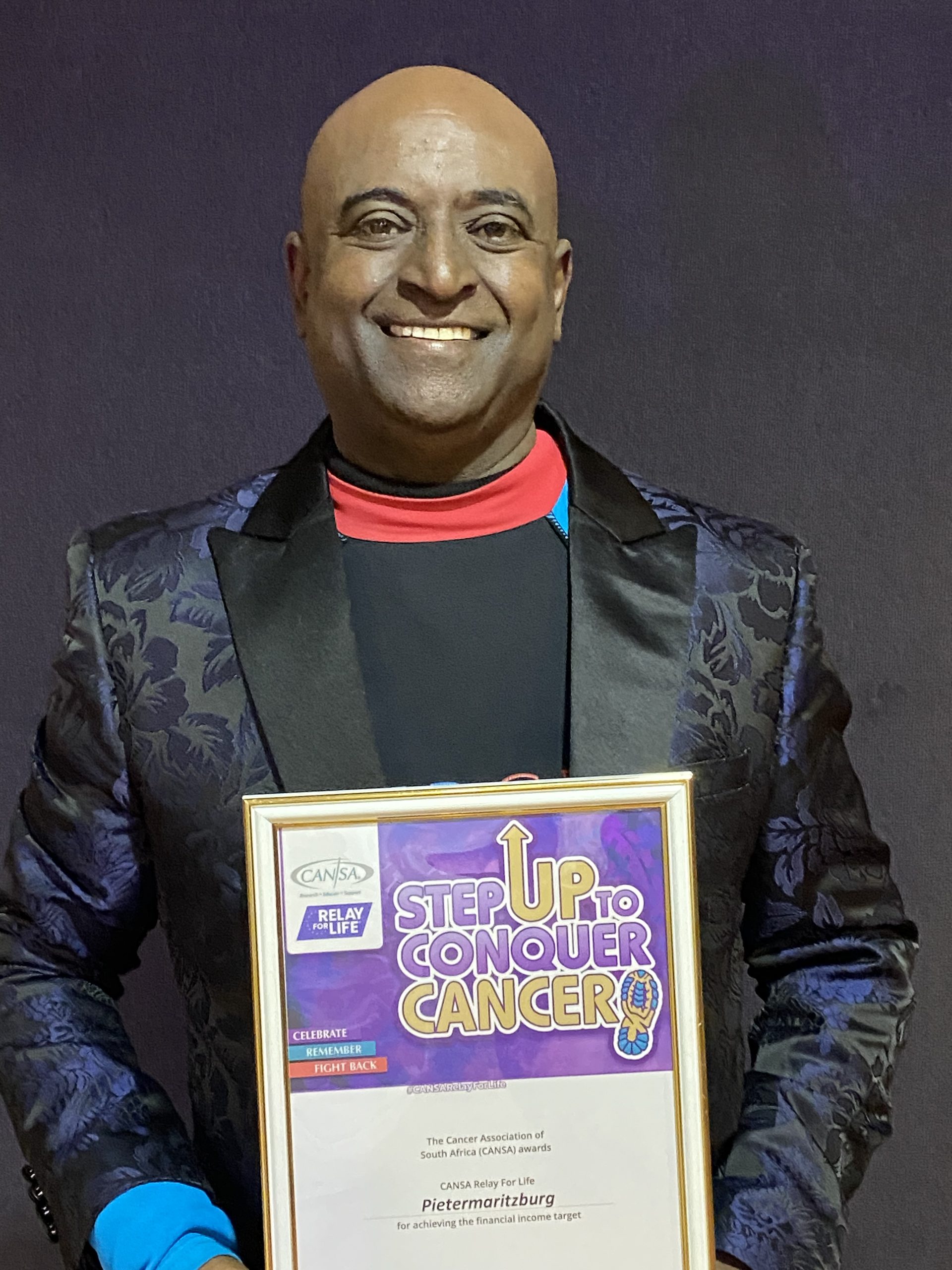
You’ve met many people along their cancer journeys. Is there a particular story that deeply inspired or moved you?
While doing presentations on cancer awareness, a middle-aged teacher came to my office and said, “You have inspired me. I want to share something… I’ve been diagnosed with breast cancer.”
I kept my emotions inside, held her hand, and said, “You are not alone. You know the treatments available, and you can beat this.” She sobbed. Then she said, “I want to break this silence in front of the assembly so others know there is life after cancer.”
She was brave. She spoke out. There wasn’t a dry eye in the room. Students and staff gave her a standing ovation. Some teachers cried bitterly, having lost their own mothers. That teacher went on to join us in the last eight Relays and now chairs the Relay Team: The Awesome Hot Family.
What keeps you going after 15 years of volunteering? What fuels your passion every day?
Attending the national Relay Summit Meetings has kept me motivated. We have nine months of planning before each Relay, so for most of the year, it’s all about Relay! As Chairperson, I brainstorm, plan, and coordinate. Others noticed my passion, and I’m now part of the National Team as a Relay Advisor on how to Celebrate, Remember, and Fight Back.
What message do you hope to spread most during your time as a Global Hero of Hope?
The nomination caught me off guard. When I was awarded the Global Hero of Hope, Caregiver, I was shocked.
I committed to telling my story – first to my family, then to the Relay community, and to the public at our events. One of the most meaningful was Breast Awareness Week at T.P.A. Primary School, where we reached parents, staff, and members of the Hope to Live Cancer Support Group.
My message is clear: break the silence on cancer and allow the human spirit to fight back – and win.
What’s the situation like in your original village today?
It is an uphill battle with breaking the silence amongst villagers as you would get retorts to stop talking about topics that “hurt our people”. That village is now no more as most families relocated to a nearby town and most to the city.
How do you support others newly diagnosed with cancer?
My first step is always to comfort them. A cancer diagnosis is not the end. I make sure I’ve done my homework so I never say anything negative. I focus on showing them that they are surrounded by people who care. Once the person is ready, we talk about living with cancer, usually in stages.
How do you promote cancer prevention?
That’s something I’m very passionate about. I speak often about reducing cancer risk through lifestyle changes.
Your body is a temple. Be careful what you put inside. We need to talk more about sugar; the excessive amount young people are consuming is alarming.
Even those not diagnosed with diabetes and other comorbidities are at risk due to high sugar intake, hypertension, and cholesterol. Prevention is key. That’s always my approach.
Images: Supplied

